Balancing the skills between leadership and management should be the focus if you aspire to succeed in your job and progress in your career. Learn how you can identify and leverage your leadership style to be the best you can be, in order to get the best results for yourself and your organization.
Become an effective leader [Apr 02, 2018] Carnegie, Dale
Balancing the skills between leadership and management should be the focus if you aspire to succeed in your job and progress in your career. Learn how you can identify and leverage your leadership style to be the best you can be, in order to get the best results for yourself and your organization.
Sh 1,495.00
Related products
-
What I Wish I Knew When I Was 20: A Crash Course on Making Your Place in the World Paperback
Sh 650.00Inspiring readers all over the globe to reimagine their future, this revised and updated edition of What I Wish I Knew When I Was 20 features new material to complement the classic text.
Major life transitions such as leaving the protected environment of school or starting a new career can be daunting. It is scary to face a wall of choices, knowing that no one is going to tell us if we make the right decision. There is no clearly delineated path or recipe for success. Even figuring out how and where to start can be a challenge.
As head of the Stanford Technology Ventures Program, Tina Seelig’s job is to guide her students as they make the difficult transition from the academic environment to the professional world—providing tangible skills and insights that will last a lifetime. Seelig is a wildly popular and award-winning teacher and in What I Wish I Knew When I Was 20 she shares with us what she offers her students –provocative stories, inspiring advice, and a big dose of humility and humor.
These pages are filled with captivating examples, from the classroom to the boardroom, of individuals defying expectations, challenging assumptions, and achieving unprecedented success. Seelig throws out the old rules and provides a new model for reaching our potential. We discover how to have a healthy disregard for the impossible; how to recover from failure; and how most problems are remarkable opportunities in disguise.
-
The 8th Habit: From Effectiveness to Greatness (The Covey Habits Series) Paperback
Sh 1,000.00In the more than twenty-five years since its publication, The 7 Habits of Highly Effective People has become an international phenomenon with more than twenty-five million copies sold. Tens of millions of people in business, government, and schools have dramatically improved their lives and organizations by applying the principles of Stephen R. Covey’s classic book.
The world, however, is a vastly changed place. Being effective as individuals and organizations is no longer merely an option—it’s a requirement for survival. But in order to thrive, innovate, excel, and lead in what Covey calls the “New Knowledge Worker Age,” we must build on and move beyond effectiveness. In this era of human history, our call is for greatness—holistic fulfillment, passionate execution, and significant contribution.
Accessing the higher levels of human genius in today’s new reality requires a change in thinking: a new mindset and a new skill-set—in short, a new habit. The crucial challenge of our world today is this: to find our voice and inspire others to find theirs. It is what Covey calls the 8th Habit. The 8th Habit is the answer to the soul’s yearning for greatness, the organization’s imperative for significance and superior results, and humanity’s search for its “voice.”
Covey’s books have transformed the way we think about ourselves, our purpose in life, our organizations, and about humankind. Just as The 7 Habits of Highly Effective People helped us focus on effectiveness, The 8th Habit shows us the way to greatness.
-
Blue Ocean Shift
Sh 2,495.00Drawing on more than a decade of new work, Kim and Mauborgne show you how to move beyond competing, how to inspire people’s confidence and seize new growth, guiding you step by step through how to take your organization from a red ocean, crowded with competition, to a blue ocean of uncontested market space. By combining the insights of human psychology with practical market-creating tools and real-world guidance, Kim and Mauborgne deliver the definitive guide to shift yourself, your team, or your organization to new heights of confidence, market creation and growth. They show why non-disruptive creation is as important as disruption in seizing new growth.
Blue Ocean Shift is packed with all-new research and examples of how leaders in diverse industries and organizations made the shift and created new markets by applying the processes and tools outlined in the book. Whether you are a cash-strapped start-up or a large, established company, a non-profit or national government, you will learn how to move from red to blue oceans in a way that builds people’s confidence so that they own and drive the process.
With battle-tested lessons learned from successes and failures in the field, Blue Ocean Shift is critical reading for leaders, managers and entrepreneurs alike. You’ll learn what works, what doesn’t, and how to avoid the pitfalls along the way. This book will empower you to succeed as you embark on your own blue ocean journey. Blue Ocean Shift is indispensable for anyone committed to building a compelling future. -
THE POWER OF SELF IMAGE
Sh 1,000.00Do you ever wake up, stand in front of the mirror and loathe the man or woman you see?
Do you want to change and transform your life?
Are you feeling that you could be happier, healthier and wealthier?Are you satisfied with how you feel about yourself?
Do you present yourself with confidence and courage when you have right opportunities?
Are you in total control of your life or happy with how you look and relate with others?
Do you feel that there is something better beside what you have and you want to feel great?This Motivational and Personal Development Book is a must read if you are to set out on your journey of self-discovery.
” The Power Of Self Image” book will open your eyes to this best kept secret for successful people and companies: One’s success, happiness, health and wealth are equivalent to his or her SELF IMAGE. It will also shift your mindset to the reality: We don’t have a relationship, financial, mental, emotional or spiritual problem; it all boils down to poor self image. And if you don’t believe in you, Bonnie will tell you why: You are NOT too young or too old to change or transform your self image.
Just like the most successful companies succeed because of their Corporate Image, likewise people succeeds because of their Strong Self Image. Between a successful person and a failure their difference lies in their SELF IMAGE. Your FIRST IMPRESSION is the LAST IMPRESSION. No one gives you a second chance when you present yourself. All successful deals, relationships and trust are built by the first impression. Your SELF IMAGE is the only key to success in your life.
-
100 Things Successful People Do
Sh 2,195.00YOUR GUIDE TO CREATING A SUCCESSFUL LIFE
100 Things Successful People Do is your guide to successful living. Mixing simple instructions with activities to get you started, whether you are looking to succeed in your family life, at work, in sports, at school or in retirement, you will find mindsets, habits, and techniques here that will help you get the results you want.100 Things Successful People Do is packed with great ideas for working smart and living well, all carefully chosen to help you achieve any kind of success you can imagine. You will discover the habits that are common to successful people and find out how to use them in your own life.
Every chapter features a new idea that will help you get closer to your goals. Mixing simple descriptions with activities and exercises, you will learn the optimal mindset and habits you need to succeed in work and life.
And this expanded edition now features a brand new section revealing the 10 things that successful people never do
-
The Chimp Paradox: The Acclaimed Mind Management Programme to Help You Achieve Success, Confidence and Happiness
Sh 1,995.00Professor Steve Peters
Professor Steve Peters – Consultant Psychiatrist & CEO Chimp Management Ltd
BA, PGCE, MBBS, MEd, MRCPsych, PhD, DSc, Dip Sports Med
Professor Steve Peters is a medical doctor; he specialises in mental health and the functioning of the human mind. He has dedicated his working life to help people get the best out of themselves and to be in a good place.
Steve’s work past and present in the field of psychiatry and education includes: Clinical Director of Mental Health Services within the NHS at a district hospital, Consultant Forensic Psychiatrist at Rampton, Senior Clinical Lecturer of Medicine and Undergraduate Dean at Sheffield University, and visiting Professor at Derby University. He has spent 20 years as an examination panel member at the Royal College of Psychiatry and has been an expert advisor to World Anti-doping Agency.
He has been a consultant to over 20 Olympic and national sporting teams including Liverpool FC, British Cycling, GB Taekwondo, England Rugby and England Football. Outside of elite sport, Prof Peters works with CEOs, senior executives, teachers, students, hospital staff and patients. Steven Gerrard, Sir Chris Hoy, Ronnie O’Sullivan, Victoria Pendleton, Katarina Johnson-Thompson, Lee Westwood, Jonathan Trott and Raheem Sterling are people that have all spoken publicly about how Prof Peters’ has helped them during their career.
Professor Peters is also a best-selling author, and his latest book ‘A Path through the Jungle’ was published in 2021. Steve has also authored 3 other books including the bestselling self-help book of all time in the UK, The Chimp Paradox, which has sold over a million copies – as per Nielsen TCM Chart 2020. Other achievements include attending Downing Street for winning the senate award twice for his excellence in teaching.
For fun, Steve competes in track and field athletics and has held multiple World Masters Champion titles and world records over the 100, 200 and 400 metres.
-
The 8th Habit: From Effectiveness to Greatness (The Covey Habits Series) Paperback
Sh 1,695.00In the more than twenty-five years since its publication, The 7 Habits of Highly Effective People has become an international phenomenon with more than twenty-five million copies sold. Tens of millions of people in business, government, and schools have dramatically improved their lives and organizations by applying the principles of Stephen R. Covey’s classic book.
The world, however, is a vastly changed place. Being effective as individuals and organizations is no longer merely an option—it’s a requirement for survival. But in order to thrive, innovate, excel, and lead in what Covey calls the “New Knowledge Worker Age,” we must build on and move beyond effectiveness. In this era of human history, our call is for greatness—holistic fulfillment, passionate execution, and significant contribution.
Accessing the higher levels of human genius in today’s new reality requires a change in thinking: a new mindset and a new skill-set—in short, a new habit. The crucial challenge of our world today is this: to find our voice and inspire others to find theirs. It is what Covey calls the 8th Habit. The 8th Habit is the answer to the soul’s yearning for greatness, the organization’s imperative for significance and superior results, and humanity’s search for its “voice.”
Covey’s books have transformed the way we think about ourselves, our purpose in life, our organizations, and about humankind. Just as The 7 Habits of Highly Effective People helped us focus on effectiveness, The 8th Habit shows us the
-
Blink
Sh 1,295.00Best-selling author Gladwell (The Tipping Point) has a dazzling ability to find commonality in disparate fields of study. As he displays again in this entertaining and illuminating look at how we make snap judgments-about people’s intentions, the authenticity of a work of art, even military strategy-he can parse for general readers the intricacies of fascinating but little-known fields like professional food tasting (why does Coke taste different from Pepsi?). Gladwell’s conclusion, after studying how people make instant decisions in a wide range of fields from psychology to police work, is that we can make better instant judgments by training our mind and senses to focus on the most relevant facts-and that less input (as long as it’s the right input) is better than more. Perhaps the most stunning example he gives of this counterintuitive truth is the most expensive war game ever conducted by the Pentagon, in which a wily marine officer, playing “a rogue military commander” in the Persian Gulf and unencumbered by hierarchy, bureaucracy and too much technology, humiliated American forces whose chiefs were bogged down in matrixes, systems for decision making and information overload. But if one sets aside Gladwell’s dazzle, some questions and apparent inconsistencies emerge. If doctors are given an algorithm, or formula, in which only four facts are needed to determine if a patient is having a heart attack, is that really educating the doctor’s decision-making ability-or is it taking the decision out of the doctor’s hands altogether and handing it over to the algorithm? Still, each case study is satisfying, and Gladwell imparts his own evident pleasure in delving into a wide range of fields and seeking an underlying truth.

![Become an effective leader [Apr 02, 2018] Carnegie, Dale](https://booksaves.com/shop/wp-content/uploads/2023/10/download-60.jpg)
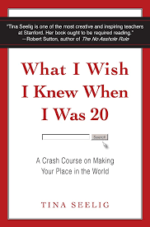
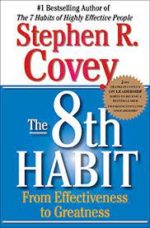
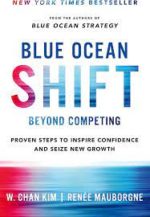
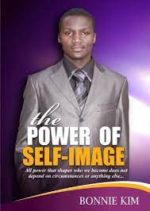
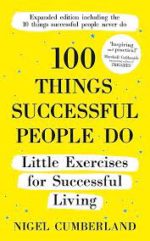

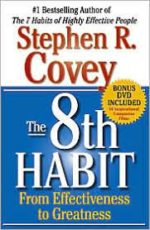
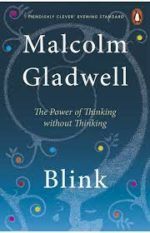
Be the first to review “Become an effective leader [Apr 02, 2018] Carnegie, Dale”